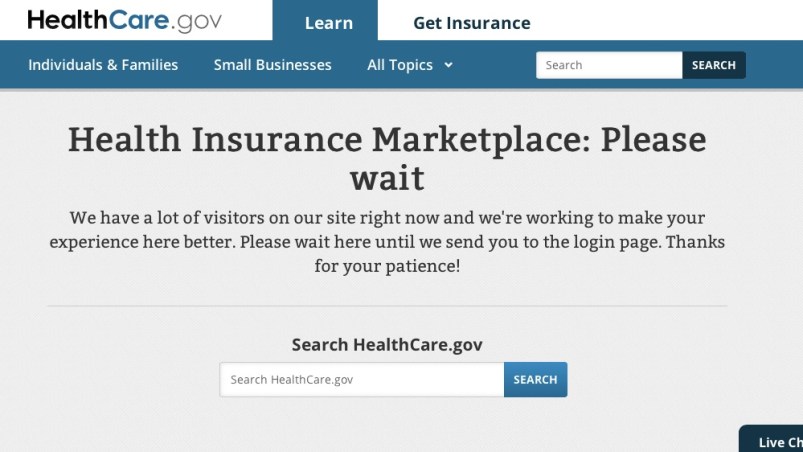“We had no role…”; “It was not our position…”; “We had a limited view…”
If you were looking for someone to take the blame for HealthCare.gov’s bumpy launch during the House Energy and Commerce Committee’s oversight hearing Thursday, you were out of luck. Executives from the leading software companies behind the site deflected responsibility, emphasizing that they didn’t have a final say over its launch — that was the Obama administration — and they had no way of knowing the full scale of its problems.
Over three hours of testimony, you’d be hard-pressed to find much more than a token acknowledgement of the problems that the general public has faced when trying to enroll in coverage through the site. From the testimony of the contractors, the products they delivered are working pretty much as they should.
“From a CGI perspective, our portion of the application worked as designed. People have been able to enroll, not at the pace or the experience we would have liked,” Cheryl Campbell, senior vice president at CGI Federal, which built the main marketplace functions of the site, told the committee. “But the end to end testing was the responsibility of CMS. Our portion of the system is what we testify in terms of what was ready to go live. It was not our decision to go live.”
“It was not your decision?” Committee Chair Fred Upton (R-MI) pressed.
“It was CMS’s decision,” Campbell said.
“Did you ever recommend to CMS that it was not ready?” Upton asked.
“It was not our position to do so,” Campbell said. “Let me clarify: CMS had the ultimate decision for go live or no go. We were there to support our client. It is not our position to tell our client to go live or not go live.”
And so it went throughout the hearing.
Campbell received the most pointed questioning because CGI built the marketplace application that the public actually interacts with. Executives from the other companies that assisted with the back end of the site were quick to distance themselves from the troubles on the front end.
They described a situation where CMS held all the cards, and the individual contractors were unaware that the website was plagued with problems in the days leading up to the launch.
“We had a limited view of the entirety of the project. We were confident in the ability of the data services hub where we spent the bulk of our efforts. We were confident it would work on Oct. 1, and it has,” Andrew Slavitt, group executive vice president at Optum/QSSI, which helped build the data services hub that helps coordinate between the marketplace, insurers and relevant government agencies, told the committee. “All of the concerns that we had … we expressed those concerns to CMS throughout a project.”
“It is important to clarify that we had no role in the development of the website, no role in the determination of eligibility, no role in health plan selection,” John Lau, program director at Serco, which helped enter information from paper applications into the digital eligibility system, said.
The contractors conceded that they weren’t able to conduct as much testing as they would have liked. Full end-to-end testing took place only shortly before the Oct. 1 launch, they stressed, even though months of testing would have been preferable.
And some of those tests, as has been previously reported by the Washington Post, crashed the site.
“It would have been better to have more time,” Slavitt told the committee.
“Did you make any recommendations to CMS about the need for end to end testing that occurred sooner than the last two weeks before it went live?” Rep. Greg Walden (R-OR) asked.
“I did not,” Slavitt said.
“What’s the standard protocol? What’s the recommended industry standard for end to end test before rolling up a major website like this?” Walden asked a few moments later.
“Months would be nice,” Slavitt said.
“Is that accurate for your company as well?” Walden asked CGI’s Campbell.
“That’s correct,” she said.
Members repeatedly asked the witnesses for names of the responsible people at CMS, though they were rarely able to offer any. Health and Human Secretary Kathleen Sebelius is expected to testify before the committee next week.






